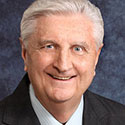CLIMATE MYTHOMANIA: Remembering When Scientists In 2018 Predicted the World Will End in 2023
By Dr. Rich Swier

“The great enemy of truth is very often not the lie–deliberate, contrived and dishonest–but the myth–persistent, persuasive and unrealistic. Too often we hold fast to the cliches of our forebears. We subject all facts to a prefabricated set of interpretations. We enjoy the comfort of opinion without the discomfort of thought.” ― John F. Kennedy, commencement address at Yale University, June 11, 1962.
One of the greatest myths ever propagated by scientist, politicians and eco-activists is that the world will end on _ _ _ _ due to climate change.
We call these predictions “climate mythomania.”
The members of the cult of climate mythomaniacs are the perfect examples of those who enjoy the comfort of opinion without the discomfort of thought.
To highlight this cult of climate mythomaniacs we present to our readers a tweet by Charlie Kirk:
One of the best headlines of the year so far… ‘Greta Thunberg deletes 2018 tweet saying world will end in 2023 after world does not end’ https://t.co/ANI24c3lLq
— Charlie Kirk (@charliekirk11) March 12, 2023
There has been a long history of lies–deliberate, contrived and dishonest and myths–persistent, persuasive and unrealistic made by scientists, economists, professors, corporations, the media and their followers.
Here are some examples of getting it wrong, very wrong:
- Dr. Dionysius Lardner in 1830 wrote, “Rail travel at high speed is not possible because passengers, unable to breathe, would die of asphyxia.”
- Lord Kelvin, President of the Royal Society in 1883 wrote, “X-rays will prove to be a hoax.”
- A 1876 Western Union internal memo read, “This ‘telephone’ has too many shortcomings to be seriously considered as a means of communication. The device is inherently of no value to us.”
- In 1903 the president of the Michigan Savings Bank advised Henry Ford’s lawyer not to invest in the Ford Motor Co., “The horse is here to stay but the automobile is only a novelty—a fad.”
- Economist and Yale professor Irving Fisher in early October 1929 wrote, “what looks like a permanently high plateau…I believe the principle of the investment trusts is sound, and the public is justified in participating in them.” Two weeks after the 1929 Stock Market Crash occurred on Thursday the 24th and Tuesday the 29th of October.
- In 1930, British economist John Maynard Keynes predicted that there will be, “three hour shifts or a fifteen-hour work week” by the year 2030.
- Albert Einstein in 1932 claimed that ”there is not the slightest indication that nuclear energy will ever be obtainable. That would mean that the atom would have to be shattered at will.”
- New York Times in a 1936 article stated, “A rocket will never be able to leave the Earth’s atmosphere.”
- Thomas Watson, chairman of IBM, 1943 said, “I think there is a world market for maybe five computers.”
- Darryl Zanuck, movie producer, 20th Century Fox in 1946 said, “Television won’t last because people will soon get tired of staring at a plywood box every night.”
Ayn Rand warned,
The uncontested absurdities of today are the accepted slogans of tomorrow. They come to be accepted by degrees, by dint of constant pressure on one side and constant retreat on the other – until one day when they are suddenly declared to be the country’s official ideology.
The difference between these bad predictions is that they never became public policy. Rather they were proven false by science, the markets and consumers globally.
Today climate change has become the most egregious of public policies. It’s dangerous because it controls science, the markets and consumers globally.
That’s the difference.
©Dr. Rich Swier. All rights reserved.

This article is courtesy of DrRichSwier.com, an online community of citizen journalists, academics, subject matter experts, and activists to express the principles of limited government and personal liberty to the public, to policy makers, and to political activists. Please visit DrRichSwier.com for more great content.

